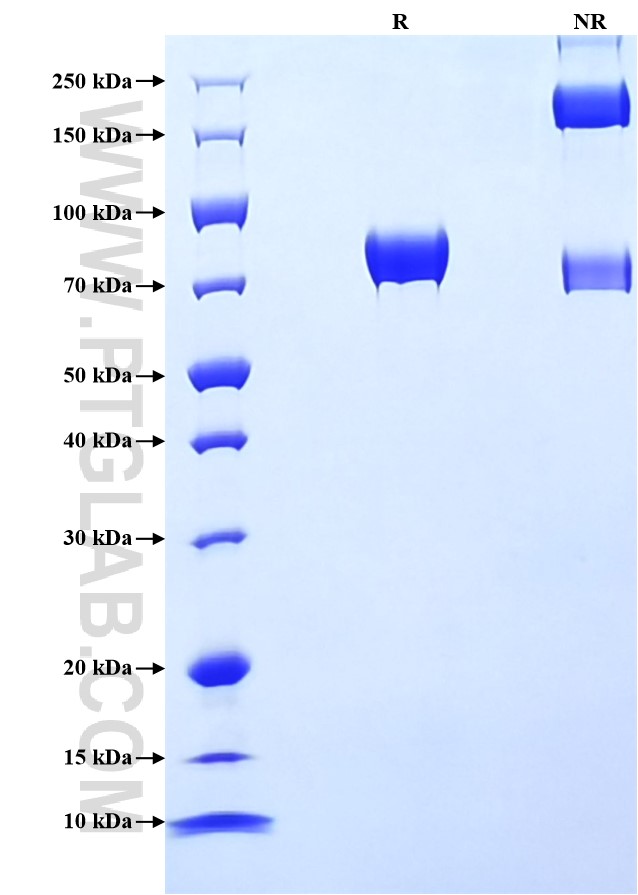Recombinant Human DDR1 protein (rFc Tag)
种属
Human
纯度
>90 %, SDS-PAGE
标签
rFc Tag
生物活性
未测试
验证数据展示
产品信息
| 纯度 | >90 %, SDS-PAGE |
| 内毒素 | <0.1 EU/μg protein, LAL method |
| 生物活性 |
Not tested |
| 来源 | HEK293-derived Human DDR1 protein Asp21-Thr416 (Accession# Q08345-1) with a rabbit IgG Fc tag at the C-terminus. |
| 基因ID | 780 |
| 蛋白编号 | Q08345-1 |
| 预测分子量 | 70.2 kDa |
| SDS-PAGE | 70-90 kDa, reducing (R) conditions |
| 组分 | Lyophilized from 0.22 μm filtered solution in PBS, pH 7.4. Normally 5% trehalose and 5% mannitol are added as protectants before lyophilization. |
| 复溶 | Briefly centrifuge the tube before opening. Reconstitute at 0.1-0.5 mg/mL in sterile water. |
| 储存条件 |
It is recommended that the protein be aliquoted for optimal storage. Avoid repeated freeze-thaw cycles.
|
| 运输条件 | The product is shipped at ambient temperature. Upon receipt, store it immediately at the recommended temperature. |
背景信息
DDR1, or Discoidin Domain Receptor 1, is a member of the receptor tyrosine kinase (RTK) family, which plays a significant role in various cellular processes including cell proliferation, adhesion, migration, and extracellular matrix (ECM) remodeling. DDR1 is known for its unique discoidin domain that allows it to bind specifically to certain collagens, initiating downstream signaling pathways that can lead to cell transformation and tumor progression (PMID: 38580164). Abnormal activation of DDR1 is closely associated with the development of various solid tumors. It mediates various signal pathways to stimulate cancer cell invasion, migration, and drug resistance. The extracellular domain of DDR1 enhances the tumor microenvironment by inhibiting tumor T-cell infiltration and promoting tumor growth.
参考文献:
1. Wu D. et al. (2024). Drug Discov Today. 29(5):103975. 2. Liu M. et al. (2024). Eur J Med Chem. 268:116291. 3. Yang L. et al. (2023). Sci Rep. 13(1):5779.


